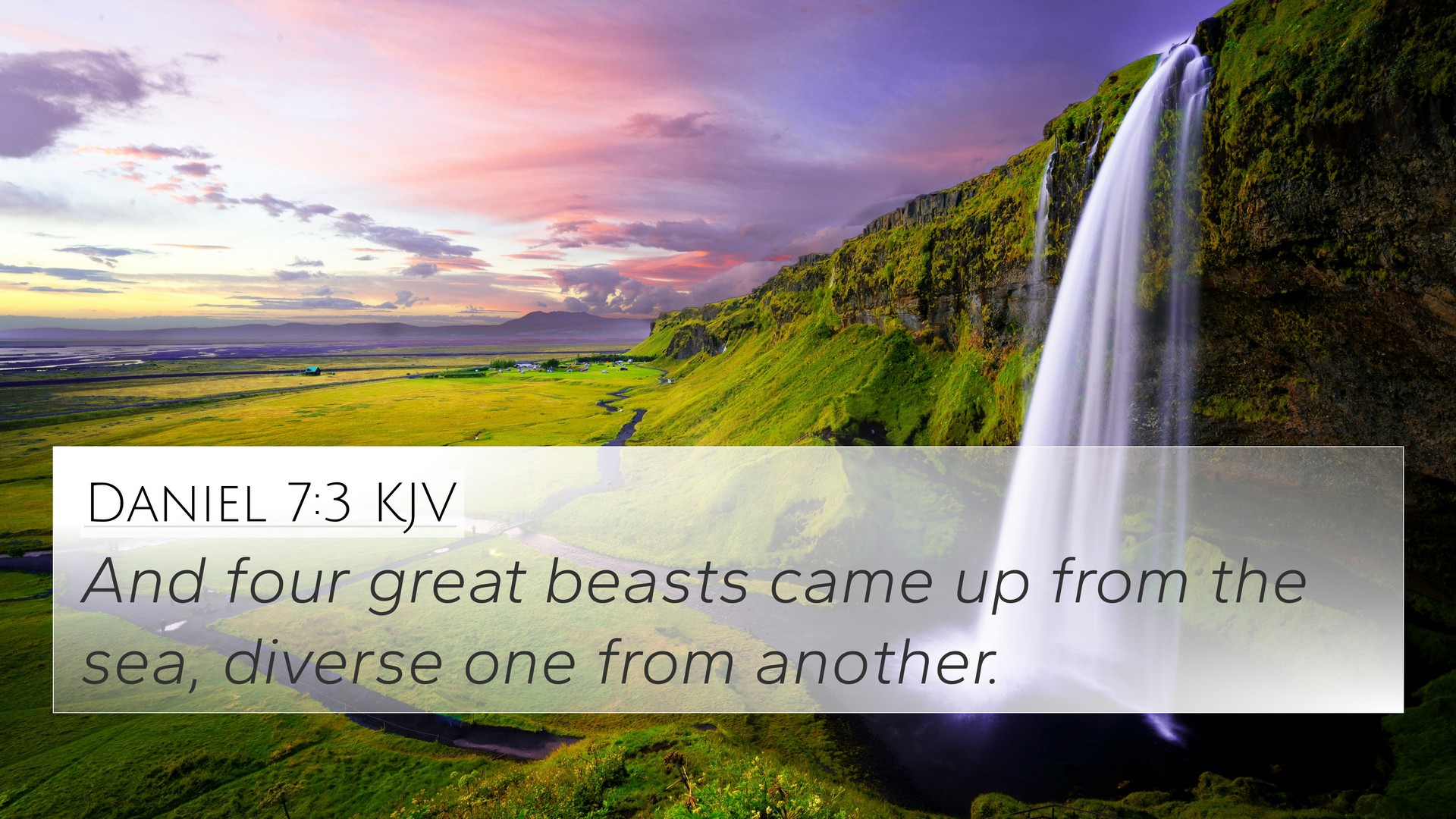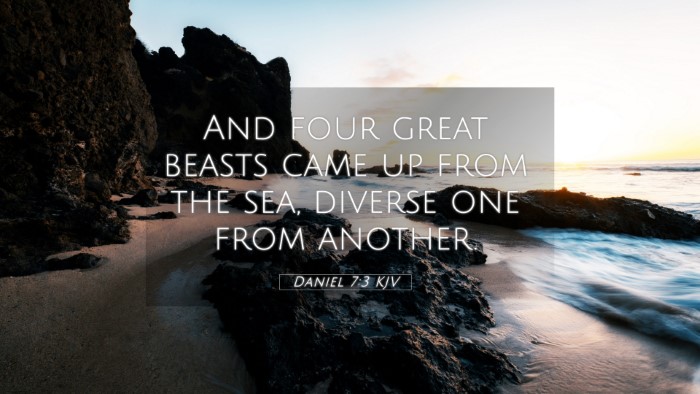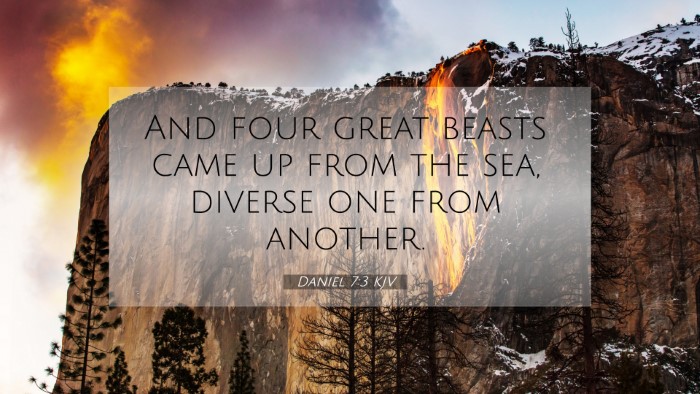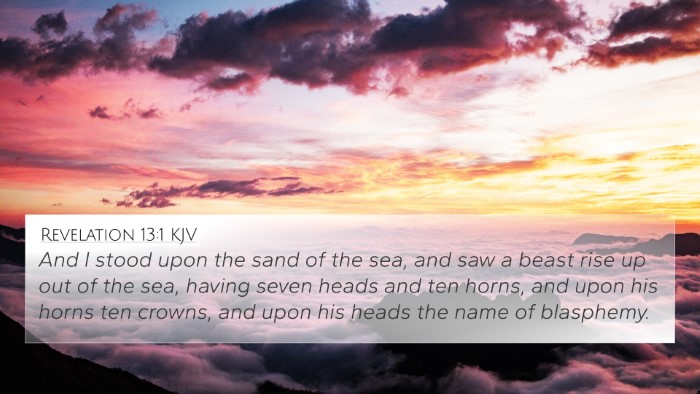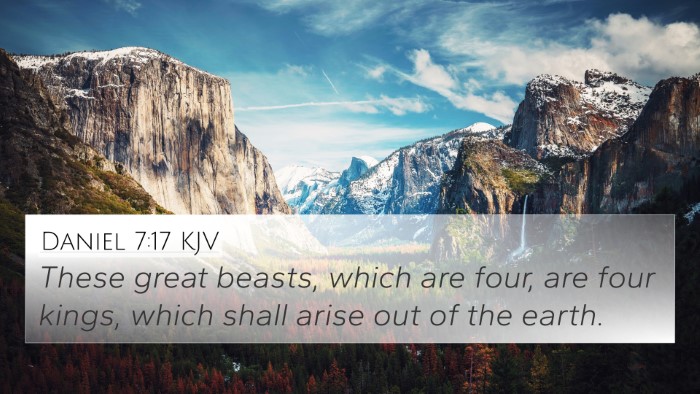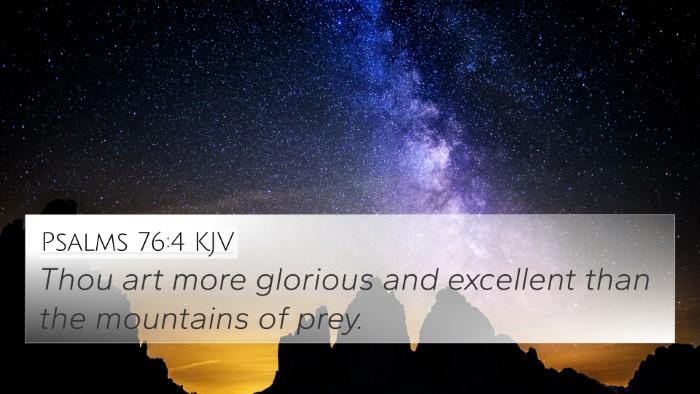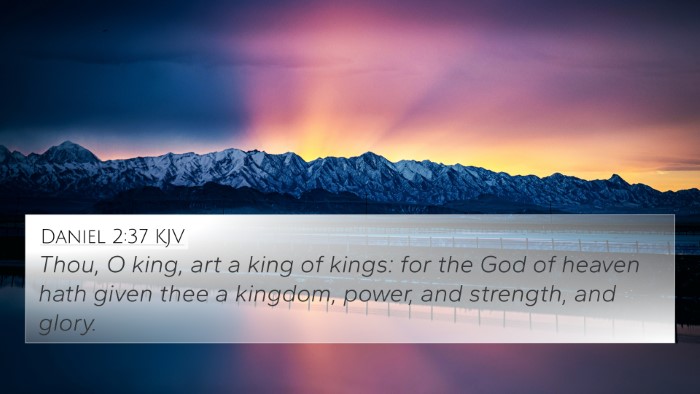Understanding Daniel 7:3
Verse Reference: Daniel 7:3 - "And four great beasts came up from the sea, diverse one from another."
Overview
In Daniel 7:3, the prophet Daniel describes a significant vision involving four great beasts emerging from the sea, each differing from the others. This imagery serves as a crucial component in understanding the prophetic messages concerning kingdoms and eschatological events.
Commentary Insights
This verse is rich in symbolic meaning and has been explored by several Biblical scholars including Matthew Henry, Albert Barnes, and Adam Clarke.
Matthew Henry's Commentary
Symbolism of the Beasts: Henry emphasizes that the four beasts represent four kingdoms that will arise on the earth. The sea from which they emerge symbolizes the tumultuous nature of nations and empires. Henry notes that the diversity in the beasts illustrates the varied characteristics and natures of these kingdoms.
Contextual Importance: In the context of Daniel, this vision is not merely historical but prophetic, directing believers to reflect on the sovereignty of God over worldly powers. The unfolding of these beasts serves as a reminder of the ultimate triumph of God's kingdom over all earthly dominions.
Albert Barnes' Notes
Interpretation of the Four Beasts: Barnes interprets that the four beasts correspond to successive empires: Babylonian, Medo-Persian, Grecian, and Roman. Each beast symbolizes a distinct kingdom with specific attributes that influence their behavior and impact on history.
Theological Implications: Barnes discusses the significance of the sea as a source of chaos, reflecting the moral and social upheaval of the world in which these kingdoms operate. This verse highlights the importance of understanding the chaotic nature of worldly governments in contrast to Divine sovereignty.
Adam Clarke's Analysis
Characteristics of Diversity: Clarke comments on the diversity of the beasts, suggesting that this reflects the varied methodologies and ideologies that characterize human governments. He notes that this distinction serves to prepare believers for the various trials they may encounter under different regimes.
Relation to End Times: Clarke links this vision to end-times prophecy, suggesting that these beasts also foreshadow the ultimate conflict between good and evil leading to the establishment of God's everlasting kingdom.
Key Cross-References
Revelation 13:1-2: Describes a beast that resembles the prior beast systems, underscoring the continuity of opposition against God's reign.
Isaiah 27:1: Mentions Leviathan, symbolizing chaos and opposition, which can relate to the beasts' emergence from the troubled sea.
Jeremiah 51:25: Offers a depiction of nations that will face destruction, echoing the themes of divine judgment present in Daniel's visions.
Revelation 17:15: Discusses the waters representing nations, paralleling the imagery found in Daniel 7:3.
Daniel 2:31-45: Also conveys the rise and fall of earthly kingdoms, making it a direct companion to the visions seen in chapter 7.
Ezekiel 32:2: Reflects on the metaphor of great beasts, contributing to the understanding of power dynamics in the historical context.
Matthew 24:7: References the calamities and upheavals that accompany the rise and fall of nations in relation to God’s plan.
Connecting Themes
Daniel 7:3 serves as a foundation for thematic connections both within the book of Daniel and throughout Scripture. The idea of kingdoms rising and falling provides a backdrop for the exploration of divine sovereignty over human affairs. The diverse natures of these beasts invite a comparative analysis across various prophetic texts, enhancing our understanding of God’s ultimate plan.
Conclusion
In summary, Daniel 7:3 is not just a historical account but a complex vision filled with deep theological implications. The variety of beasts signifies the diverse nature of earthly kingdoms, while the overarching narrative emphasizes God's control over history. For those engaging in Bible studies and exploring cross-references, this verse is a vital link in understanding the full scope of biblical prophecy and divine sovereignty.
